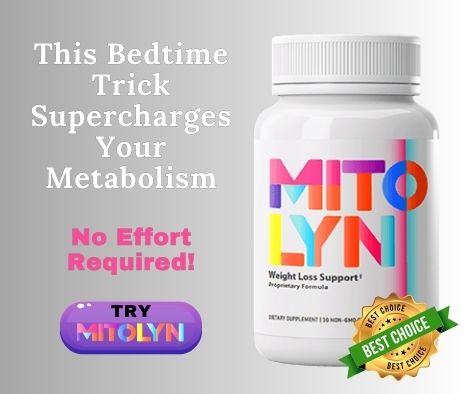Cortisol, often labeled the “stress hormone,” is more than just a response to anxiety or pressure. It controls energy, metabolism, immune function, inflammation, and even how fast you age. The problem? Modern life has hijacked your cortisol cycle, keeping you in survival mode 24/7.
Your body was designed for short bursts of cortisol—like running from a predator—not for the endless stressors of emails, deadlines, processed food, artificial lighting, sleep deprivation, and overstimulation. When cortisol stays high for too long or crashes too low, your body begins to break down.
This leads to fatigue, weight gain, mood swings, brain fog, inflammation, and a gradual decline in overall health. The solution is not just to “reduce stress” but to reset your cortisol cycle and rebuild resilience from the inside out.
How Cortisol Affects Every Aspect of Health:
1. Energy Crashes, Chronic Fatigue, and Burnout
Cortisol should peak in the morning to wake you up, gradually decline throughout the day, and stay low at night to allow for deep sleep. But when your body is constantly stressed:
Cortisol stays high at night, leaving you restless and wired.
It plummets in the morning, making it impossible to function without caffeine.
Energy swings become erratic, leading to constant exhaustion.
To reset your natural energy rhythms, start your day with morning sunlight exposure—even 10 minutes outdoors signals your body to regulate cortisol correctly. Avoid screens an hour before bed, as blue light suppresses melatonin and keeps cortisol elevated. Eat protein in the morning and healthy carbs in the evening to support natural hormone cycles.
2. Stubborn Belly Fat and Insatiable Cravings
Cortisol triggers fat storage as a survival mechanism during stress. It sends most of it to the belly, where the body can quickly access energy in case of danger. Chronic stress:
Increases sugar and carb cravings to keep energy levels up.
Triggers insulin resistance, making fat loss harder.
Breaks down muscle tissue, slowing metabolism.
Instead of extreme dieting, focus on blood sugar stability. Eating protein, fiber, and healthy fats at every meal prevents sugar crashes that spike cortisol. Strength training builds muscle, which directly combats stress-induced fat storage. Magnesium-rich foods like leafy greens, nuts, and dark chocolate help reduce cortisol-driven cravings.
3. Anxiety, Mood Swings, and Brain Fog
Cortisol changes the way your brain works, making you more anxious, reactive, and stressed over time. It weakens memory, reduces focus, and makes it harder to stay calm, keeping you stuck in a cycle of overwhelm. Chronic exposure:
Lowers serotonin and dopamine, making you feel anxious, unmotivated, and emotionally unstable.
Shrinks the hippocampus, impairing memory and focus.
Overstimulates the amygdala, making you more reactive to stress.
To calm the nervous system, try breathwork techniques like box breathing (4-4-4-4 seconds) to lower cortisol instantly. Cold exposure (cold showers, ice baths) builds stress resilience, making daily stressors feel less overwhelming. Limit caffeine, doomscrolling, and excessive news consumption, which overstimulate the brain and fuel stress responses.
4. Weak Immunity, Inflammation, and Chronic Pain
Cortisol helps control inflammation and keeps the immune system balanced. Too much or too little can weaken your body’s ability to fight illness:
Too much cortisol suppresses immune function, leading to frequent colds and slow healing.
Too little cortisol triggers inflammation, increasing pain and worsening autoimmune conditions.
Reduce the burden on your body by eliminating environmental toxins—switching to organic produce, chemical-free personal care products, and filtered water significantly lowers internal stress. Vitamin C and zinc help support immunity, while time in nature naturally regulates cortisol and inflammation.
5. Hormonal Imbalances and Reproductive Issues
When cortisol stays high, your body focuses on survival instead of reproduction. This can lead to hormone imbalances and lower fertility:
Testosterone drops in men, causing fatigue, brain fog, and muscle loss.
Estrogen and progesterone imbalances in women, leading to irregular cycles, PMS, and worsened menopause symptoms.
To restore balance, eat enough healthy fats—avocados, eggs, and olive oil all provide the raw materials for hormone production. Adaptogenic herbs like ashwagandha, rhodiola, and maca naturally support reproductive health. Over-exercising can further stress the body, so focus on strength training and restorative movement instead of excessive cardio.
Little-Known Factors That Keep You Stressed
Your Gut and Cortisol Are Connected
Bad gut bacteria elevate cortisol and increase stress responses.
Processed foods, antibiotics, and artificial sweeteners disrupt gut health, fueling inflammation.
Fermented foods (kimchi, sauerkraut, kefir) and prebiotic fiber (onions, garlic, asparagus) restore gut balance and regulate cortisol naturally.
Dehydration Triggers a Stress Response
Even mild dehydration raises cortisol levels.
Filtered water + electrolytes (sea salt, coconut water) support proper hydration and reduce stress.
Caffeine on an empty stomach worsens dehydration and spikes cortisol.
Social Isolation Raises Cortisol
Loneliness triggers the same cortisol response as physical danger.
Strong social connections lower stress and extend lifespan.
Physical touch (hugs, massage) reduces cortisol levels.
### Less Stress, More Resilience: How to Take Control of CortisolCortisol isn’t the enemy—but running on it 24/7 is a silent disaster. The key is not just reducing stress but training your body to handle it better.
Wake up with the sun. Even 10 minutes of morning sunlight resets cortisol and improves sleep at night.
Cut caffeine after noon. Stimulants keep cortisol artificially high and disrupt sleep.
Eat to stabilize blood sugar. Protein, fiber, and fats reduce cortisol spikes.
Use movement wisely. Strength training builds resilience, but excessive cardio raises cortisol.
Make sleep sacred. Go to bed at the same time each night, remove screens an hour before bed, and keep the room cool.
Train your nervous system. Breathwork, meditation, and cold exposure reduce overactive stress responses.
Final Wake-Up Call: Stress Isn’t Just a Feeling—It’s a Slow Burn on Your Health
Cortisol isn’t just a stress hormone—it’s a metabolic master switch. It determines whether you thrive or burn out, whether you stay lean or store belly fat, whether you wake up with energy or crawl through the day exhausted.
Most people don’t recognize the damage until it’s too late. By the time burnout, chronic fatigue, weight gain, or serious health issues show up, cortisol has been wrecking their system for years.
Then recognize that your body is not broken—you’re simply operating in survival mode, and you have the power to change it.
Keep pushing through burnout or take control before it takes control of you.



